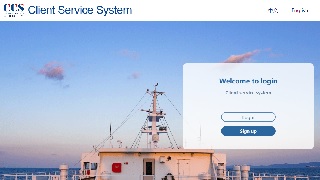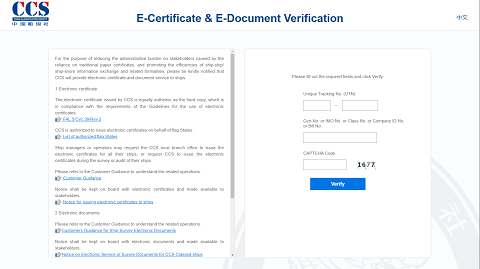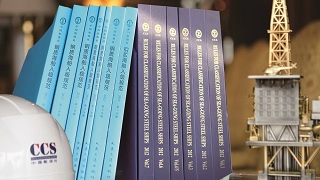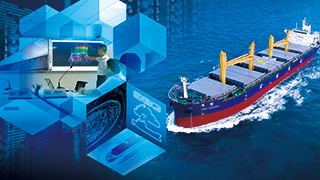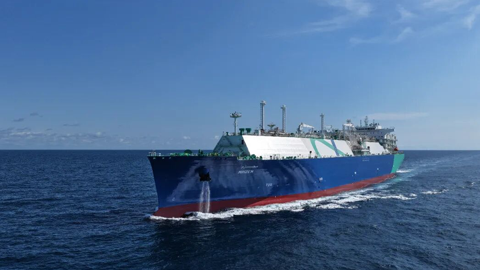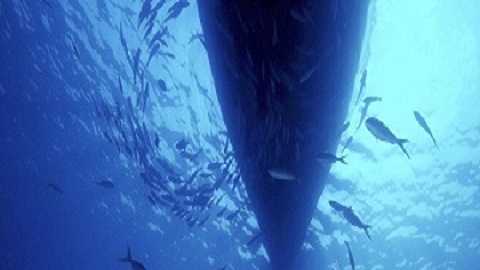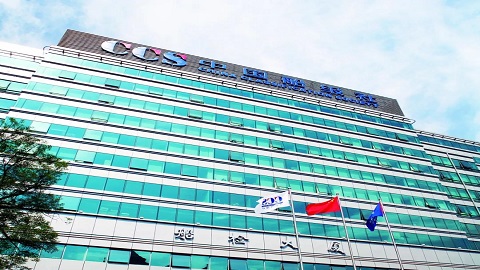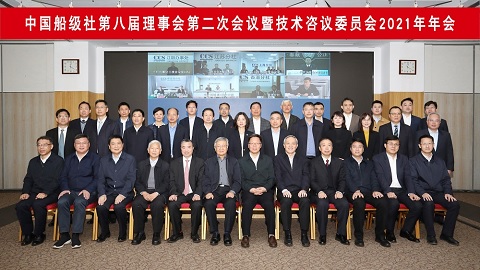01/01.1970
CCS Website
www.ccs.org.cn (hereinafter referred to as “the Website”) is the exclusive
website established by CHINA CLASSIFICATION SOCIETY (hereinafter referred to as
“CCS”). Should you visit and use CCS Website, you must accept all terms and
conditions contained in this agreement and the notices timely posted on the
Website without any reservation, and abide by the relevant regulations and
rules of Internet, World Wide Web and/or CCS Website. Once you visit and use
CCS Website, it means that you have agreed to and accepted all such terms,
conditions and notices. CCS may modify such terms and conditions at any time, and
your use of the website is subject to such changes. You are kindly required to
carefully and regularly read the related contents. If you continue to use the
Website, you will be considered to have accepted the changes. Copyright All matters on the
Website are the copyright of CCS, including all the information, texts, images,
publications and layout on http://www.ccs.org.cn. All readable and visible
materials on the website are the intellectual property of CCS and are therefore
protected by the Law of Intellectual Property. Without prior written permission
of CCS, no content of CCS website should be utilized by any group or individual
(including but not limited to: illegally reproducing, broadcasting, displaying,
mirroring and downloading any of the contents); otherwise, CCS will claim the
liabilities sustained thereby.Users are strictly
prohibited to infringe upon or try to infringe upon the Website, including:
logging into servers or accounts without authorized access; accessing the
Website database not open to them; attempting to detect, test or damage the
security of the Website and its systems; trying to disturb the Website services
provided to users. All individuals or entities causing damages to the Website
systems or the network security will be brought to justice according to the
regulations of the law. Disclaimers CCS hereby disclaims
any legal liability imposed under and/or due to the following situations: 1. All materials, information and services
contained on or available through the Website are provided on an “as is” or “as
available” basis for your use. CCS hereby announces that it disclaims all
warranties of any kind, either express, implied, statutory or promissory,
concerning your use of any contents and services relating to the Website or
links through the Website. Your use of the Website is automatically taken as
accepting all the risks sustained by browsing the Website. 2. The Website will reasonably endeavor to
provide perfect information; however, it cannot guarantee the security,
accuracy and integrality of the contents contained on the Website; or that the
Website will be available at any particular time or location; or any defects or
errors will be corrected; or that the content is free of viruses or other
harmful components. Your use of the Website is solely at your own risk. Because
some jurisdictions do not permit the exclusion of certain warranties, these
exclusions may not apply to you. 3. Under any circumstances (including but
not limited to negligence), users shall be held liable to themselves for any
direct, indirect, special or consequential damages resulting from the use of
information contained on this Website or obtained through other links, such as
loss of income or profits or damage to computer systems or loss of data. 4. CCS disclaims any responsibility for the
deletion, failure to store, misdelivery or untimely delivery of any information
or material. CCS disclaims any responsibility for any harm resulting from
downloading or accessing any information or material on the Internet through
CCS SERVICES. 5. CCS expressly disclaims, to the fullest
extent permitted by law, all express, implied and statutory warranties,
including, without limitation to, the warranties of merchantability, fitness
for a particular purpose, and non-infringement of proprietary rights.You understand and
agree that you download or otherwise obtain material or data through the use of
CCS Website at your own discretion and risk and that you will be solely responsible
for any damages to your computer system or loss of data that results from the
download of such material or data. Limitation of Liability CCS shall not be liable
for any direct, indirect, punitive, incidental, special or consequential
damages that result from the use of, or inability to use, this Website. This
limitation applies whether the alleged liability is based on contract, tort,
negligence, strict liability or any other basis, even if CCS has been advised
of the possibility of such damage. The limitation also applies to the situation
when the necessary and limited remedy measures cannot be taken, and liability
shall be limited to the largest extent permitted by law.Under no circumstances
shall CCS be held liable for any delay or failure in performance resulting
directly or indirectly from acts of nature, force majeure, or causes beyond its
reasonable control, including, without limitation to, Internet failures,
computer equipment failures, telecommunication equipment failures, other equipment
failures, electrical power failures, strikes, labor disputes, riots,
insurrections, civil disturbances, shortages of labor or materials, fires,
floods, storms, explosions, natural disasters, war, governmental actions,
orders of domestic or foreign courts or tribunals, non-performance of third
parties, or loss of or fluctuations in heat, light, or air conditioning. User Conduct You shall by no means: (i) distribute, use or make copies of, or
otherwise duplicate any materials contained on the Website, except as expressly
authorized under these Terms or authorized by CCS; (ii) make the Website, or any materials
contained on the Website, available to any unauthorized third party; (iii) sell, loan, rent, lease, re-license,
sublicense, transmit, distribute, re-distribute, or timeshare the Website, or
create any Internet "link" to the Website without prior express
written authorization from CCS, or "frame" or "mirror" the
materials contained on or accessible from the Website on any other server or Internet-based
device; (iv) cause or permit the reverse
engineering, disassembly, decompilation of, or any other attempt to derive any
software comprising or available through the Website, except to the extent
permitted by law; or (v) remove, alter, amend, or otherwise
tamper with any titles, trademarks, copyright, restricted rights notices, or
other proprietary rights legend, or any license agreement, included or provided
with the Website. In addition, without
limitation, You agree not to use the Website: (a) to harvest, collect, gather
or assemble any materials for other than internal or noncommercial use; (b) to
harvest, collect, gather or assemble information or data regarding other users,
including e-mail addresses, without their consent; (c) to transmit or post any
material or information which is unlawful, harassing, libelous, abusive,
defamatory, threatening, harmful, vulgar, calumniatory, invasive of another's
privacy, filthy, obscene or otherwise objectionable; (d) to transmit any
material that may infringe the intellectual property rights or other rights of
third parties, including any patent, trademark, copyright, trade secret, or
right of publicity; (e) to transmit any material that contains software viruses
or other harmful or deleterious computer code, files or programs; (f) to
interfere with or disrupt servers or networks connected to the Website, or
violate the regulations, policies or procedures of such networks; (g) to attempt
to gain unauthorized access to the Website, other accounts, computer systems or
networks connected to the Website, through password mining or any other means;
or (h) to harass or interfere with another user's use and enjoyment of the
Website.If you are entering
this Website on behalf of a corporation or any other legal entity, or accessing
or using this Website as part of your duties as an employee of a corporation or
any other legal entity, you hereby represent and warrant to CCS that you are
authorized to act on behalf of such corporation or legal entity and to bind the
same to these terms and all obligations arising hereunder. All rights and
licenses granted hereunder are personal to you and shall not include any right
to grant sublicenses to any third party except as expressly set forth herein. Links to Other Web
Sites Any linked sites
contained herein are not under the control of CCS and CCS is not responsible
for the contents of any linked site or any link contained in a linked site. CCS
reserves the right to terminate any links or linking program at any time. CCS
does not endorse companies or products to which it links and reserves the right
to notices as such on its web pages. If you decide to access any third party
sites linked to this Website, you do this entirety at your own risk. Terms of Updating
CCS will update the
Website and modify the “Legal Statement” at any time in accordance with
specific conditions. You should keep yourself within the bounds of such
revision. Therefore, you'd better review this web page regularly to obtain the
updated information on binding clauses. CCS reserves the right to revise,
suspend and terminate the operation of the Website, and to add, amend or delete
these terms at any time without prior notice.

